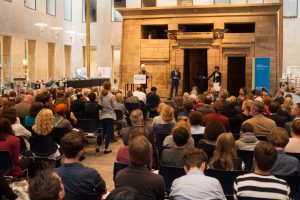UNESCO Debate 2016: World Heritage: Treasure or Target?
I agree with Stephan that not only humans deserve protection. I have often argued that cultural heritage is a basic human need. This notion is not something I thought of the rst day I started studying archaeology, but rather something that I gradually came to realise through observation of communities around the world and through re ection also on my own past.
As a society that has suffered a civil war, Somalis know how painful it is to see their people killed, their land destroyed (toxic dumping, illicit shing and burning of our essential trees for the international charcoal trade). Hence, war does not only result
in the destruction of sites but also the destruction of the very livelihoods that sustain people. Whilst the land was contaminated with mines and our museums looted and sites destroyed, our memory and our skills and knowledge remained (Mire, 2007).
I have bene tted from the knowledge and holistic approach of my Somali people with regard to heritage. They typically talk about the landscapes as their heritage, not usually sites or museums. Holistically their natural and cultural heritage, as well as their skills and practices, are inherent in the landscape. It is all this that Somalians inherit from their elders and ancestors (Mire, 2015a, 2015b). Artefacts have their own history and meaning as perceived by their owners.
In my work in Somaliland, I have tried to document the past and different stories of the past in the present. Depending on where you look and who you work with heritage is contested. However, this plural voice, these diverse data, can be a critical instrument for reconciliation and rehabilitation in times of war, con ict and complex emergences.

Sada Mire UNESCO debate with Stephan Sanders and Andree van Ess
